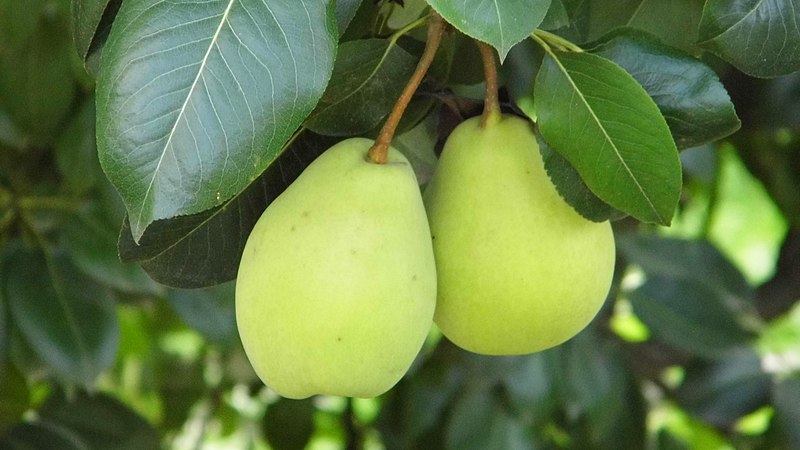
In response to the growing concerns about climate change and its potential impacts on pear production, KU Leuven, a prominent Flemish university, has embarked on a
comprehensive study. The goal is to create more resilient and healthier Belgian pears that can thrive in the face of shifting climate conditions. Bart Nicolaï, a professor at KU Leuven and the director of the Flemish Centre for the Preservation of Horticultural Products, shared this innovative initiative with De Morgen, emphasizing that we are on the verge of cultivating "the pears of the future."
Belgium stands as one of the world's top three pear exporters, with a rich tradition of producing high-quality fruit, particularly Limburg pears. However, as climate change poses a significant threat to the fruit industry, KU Leuven has joined forces with UHasselt and the Research Centre for Fruit Growing to investigate the potential consequences of climate change on pear cultivation in the years ahead.
To explore the various effects of climate change, the researchers have turned to advanced technology, employing Ecotrons—specialized climate research facilities often referred to as "remote time machines." Within large plastic domes, the scientists can simulate a range of climate scenarios, encompassing factors such as precipitation, temperature, wind speed, and CO2 levels in the air. This approach allows them to discern which specific weather conditions may impact the growth and quality of the fruit.
Furthermore, artificial intelligence (AI) plays an increasingly vital role in fruit farming, primarily as a tool to combat food waste. When apples and pears transition from cold storage to the auction floor, meticulous inspections for internal defects, like cavities and browning, are crucial. To enhance the efficiency of this process, the researchers have initiated a study that involves capturing X-ray images of the fruit's interior, as explained by Professor Nicolaï.
AI can swiftly analyze these images and determine whether a particular fruit is fit for sale. However, training such an algorithm requires substantial data, which prompted one researcher to use the CT scanner at UZ Leuven during non-patient hours to scan pears. This generated a significant dataset, yet more examples were needed to refine the algorithm's ability to recognize patterns.
To amass even more data, the researchers devised a creative solution—virtual pears. Utilizing AI, they can generate thousands of virtual pears, each with a distinct shape. This extensive dataset of virtual pears serves as the foundation for an algorithm that leverages X-ray technology to assess the health of actual pears. The margin of error in this assessment is exceptionally small. While the focus has been on apples and pears initially, the potential of this method can be extended to other fruits, demonstrating the innovative strides being made in the field of fruit farming and research. Photo by Sridhar Rao, Wikimedia commons.








































